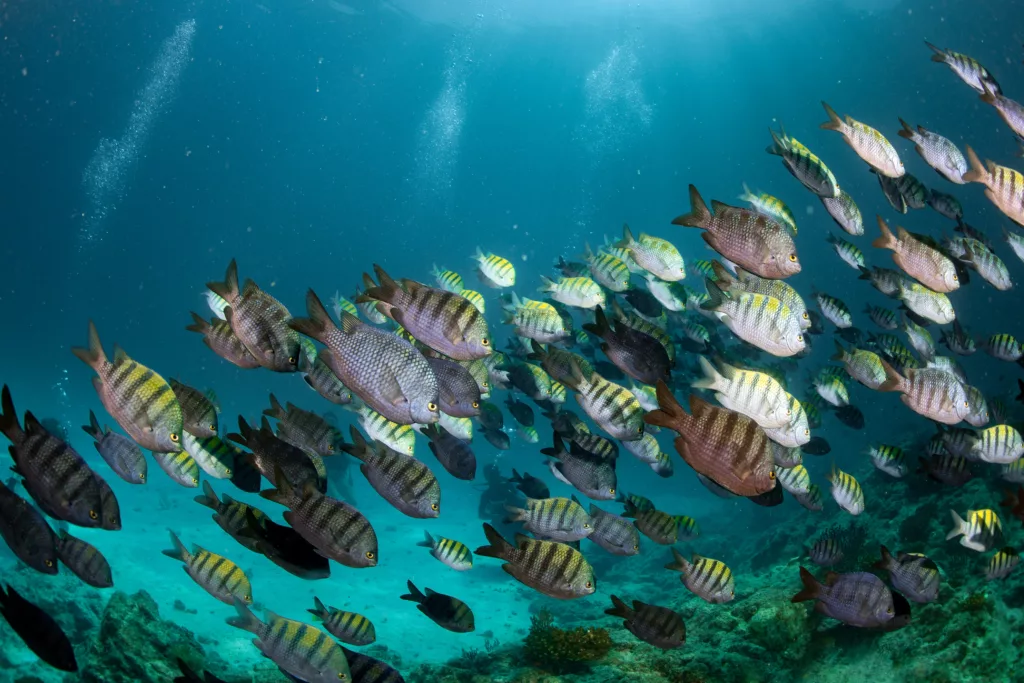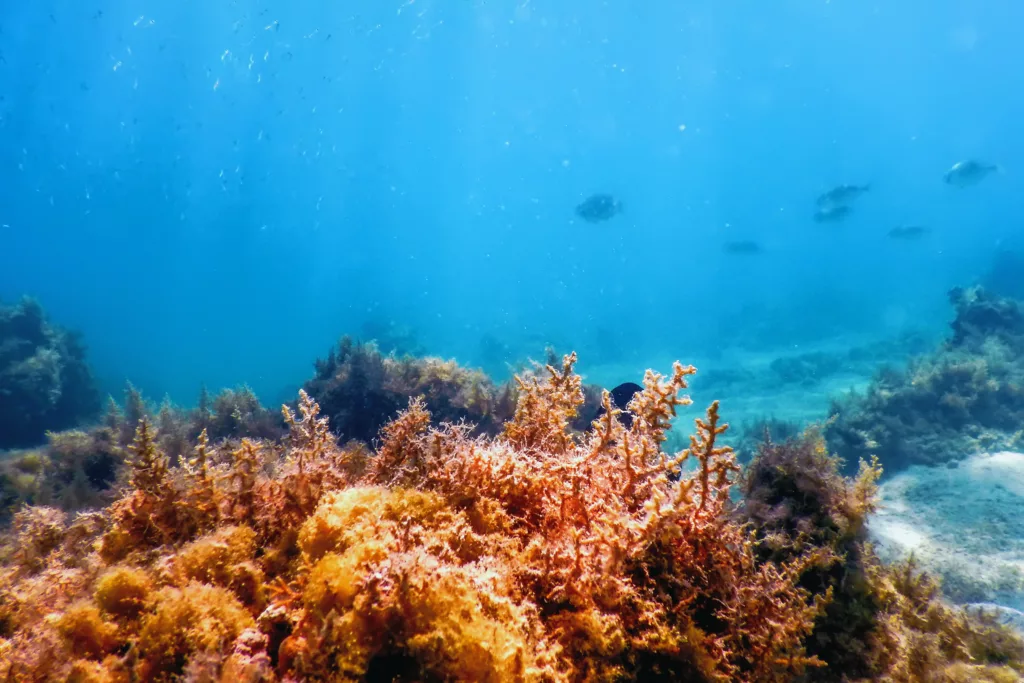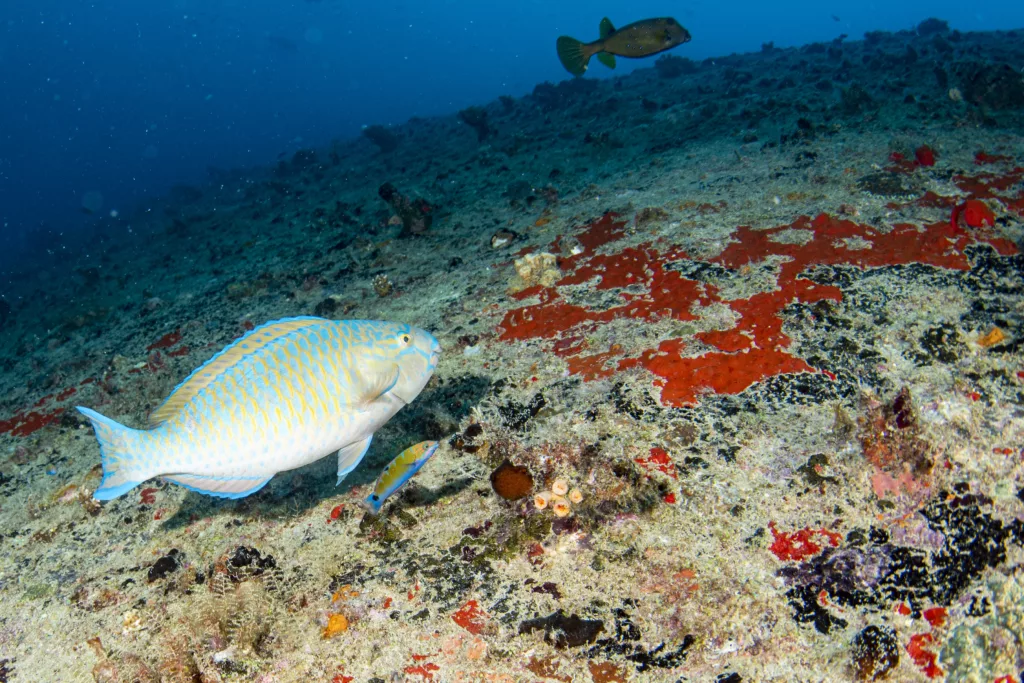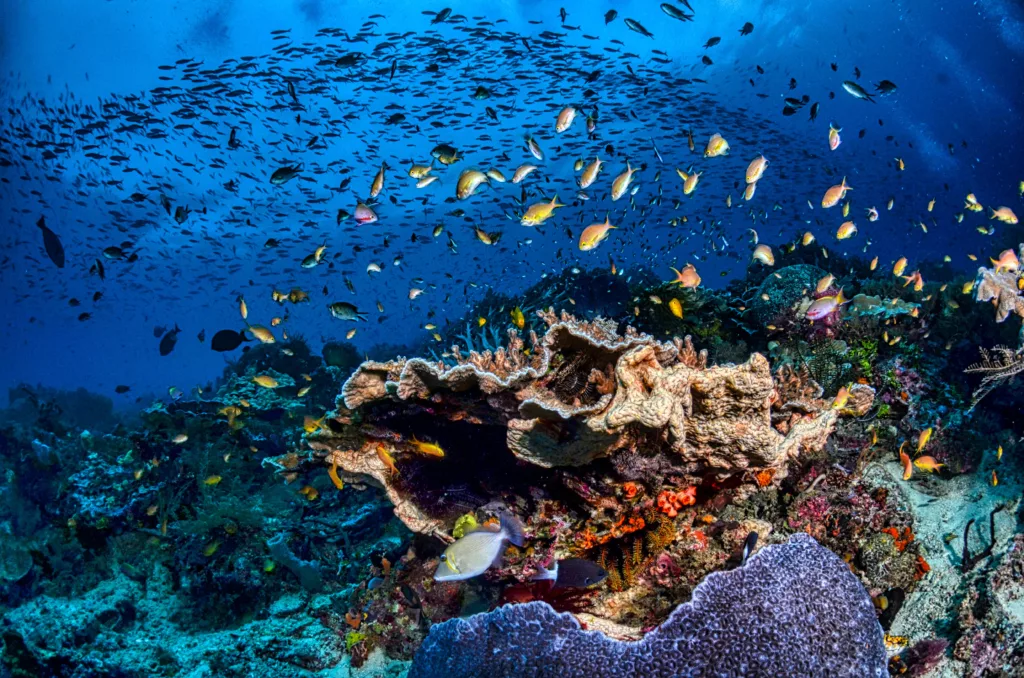Diving isn’t just an adventure; it’s a doorway to an unseen world. For many enthusiasts, scuba diving offers an exclusive glimpse into the mysteries of the underwater realm, particularly in exquisite locales like Bali, Indonesia. With its vibrant coral reefs and an astonishing variety of marine life, Bali is a jewel in the crown of diving destinations. This blog dives into why divers are endlessly fascinated by rare aquatic species and how these creatures turn an ordinary dive into a treasure hunt of discovery.
The Lure of the Deep: Why Divers Chase Rare Species
The allure of diving into the unknown is about more than just the thrill; it’s about the relentless pursuit of rare and unique marine species that exemplify the beauty and mystique of underwater ecosystems. These rare species, often hidden within the ocean’s vast expansities, offer divers not just a glimpse into the unusual but also test their skills and patience. The quest to spot something like a parrotfish in its vibrant regalia or a reclusive octopus among the coral reefs can transform an ordinary dive into an unforgettable expedition. Divers often share stories of their encounters with these rare creatures, each tale adding a strand to the rich tapestry of marine exploration. Not just a hobby, diving for rare species helps in understanding ecological balances and contributes to marine biodiversity research. Venues like the coral gardens of Bali offer an undersea panorama filled with unique species, each playing a pivotal role in their habitats. Each dive brings with it an opportunity to contribute to data that could potentially aid in the conservation of these species. This act of exploring is as much about personal accomplishment as it is about contributing to a larger understanding of our planet’s blue depths.
Bali Diving: A Gateway to Marvelous Marine Biodiversity

Bali is renowned worldwide not only for its serene beaches and cultural sagacity but also as a hub for underwater exploration. It offers a cornucopia of diving experiences that attract both novices and seasoned divers alike. The diving sites around Bali are variably rich with diverse marine life; from the small and mesmerizing pigmy seahorse to the large, elusive sunfish known locally as Mola Mola. The underwater topography of Bali provides a variety of environments, ranging from shallow coral reefs teeming with colorful fish to deep-sea wrecks that serve as artificial reefs attracting diverse aquatic life. Diving here offers a unique opportunity to observe these creatures in their natural habitats, contributing to a greater understanding and appreciation of marine biodiversity. Additionally, the warm, crystal-clear waters make for excellent visibility, enhancing the diving experience. Preservation efforts by local communities and international organizations alike make Bali not just a playground for divers but a sanctuary for the marine life it houses. This harmonious blend of natural beauty and conservation makes Bali an exemplary diving destination that promises awe-inspiring underwater encounters with each dive.
Must-Visit Dive Sites in Bali for Rare Encounters

Among the numerous spectacular dive spots in Bali, sites like Tulamben’s USAT Liberty Wreck, and the dreamlike drift dives at Nusa Penida offer more than just beautiful underwater landscapes; they serve as gateways to rare wildlife sightings. The USAT Liberty, a sunken World War II ship, now encrusted with an array of vibrant coral, provides shelter to a diverse population of marine species. Tulamben provides relatively easy access for divers, making it ideal not only for advanced divers but also for beginners eager to experience their first wreck dive. On the other hand, the currents of Nona Penida create perfect conditions for drift diving, an exhilarating experience where divers can glide effortlessly alongside manta rays and possibly encounter the mystical Mola Mola, especially during the peak season from July to October. These sites not only promise exciting dives but also opportunities for underwater photography and sightings of rare species, adding a remarkable chapter to your diving adventures. Visibility tends to be excellent, and the rich biodiversity ensures that each dive is as educational as it is enchanting.
Tips for Successful Underwater Encounters
To make the most of your diving experiences, especially in richly biodiverse locations like Bali, there are several strategies you should consider. First and foremost, respecting the marine environment is crucial. This includes maintaining an appropriate distance from wildlife to avoid causing them stress or altering their natural behaviors. Equally, it is of paramount importance to not touch or tamper with the coral or other sea life, as these actions can have damaging long-term effects on the ecosystem. Using the expertise of local dive guides can greatly enhance your chance of encountering rare species, as these professionals possess deep knowledge of the best times and locations for sightings. Additionally, timing your dives during the optimal seasons for marine life activity will greatly increase your chances of successful encounters. Ensuring that you have reliable and suitable dive gear is also critical; this not only increases personal safety but also enhances the overall diving experience. Adhering to these practices will not only enrich your diving adventures but also contribute to the sustainability of these magnificent underwater worlds.
Conservation Efforts: The Role of Responsible Diving

Diving is not only an adventurous activity but also a significant means of supporting oceanic conservation efforts. Engaging in responsible diving practices protects the marine environments we cherish and ensures they remain vibrant for future generations. When divers observe marine life without interfering, they help maintain the natural dynamics of these ecosystems. Moreover, many diving communities and organizations undertake direct conservation actions, such as coral reef restoration projects and marine species protection programs, which divers can support. By participating in these initiatives, divers become citizen scientists, contributing valuable information that aids in ecological studies and conservation strategies. Additionally, by choosing eco-friendly diving operations and guiding services that prioritize sustainability, divers can help reduce the environmental footprint of their activities. Responsible diving thus embodies a comprehensive approach to enjoying the underwater world while actively participating in its preservation. This sustainability-focused mindset is pivotal in ensuring the ongoing health and diversity of marine ecosystems globally.
Dive Deeper, Discover More: Embracing the Underwater Mysteries
Diving is not just a sport; it’s an exploration of the vast, often untouched aquatic world. For many, the quest to spot rare marine species adds an element of thrill and accomplishment to their dives, especially in biodiverse hotspots like Bali. As we have seen, sites like Tulamben and Nusa Penida offer more than just beauty; they provide a sanctuary for rare and unique marine life that draws divers from around the globe. By visiting these must-visit dive sites, employing responsible diving practices, and adhering to conservation efforts, divers not only enhance their experience but also contribute to the sustainability of marine biodiversity. Embrace the depths of scuba diving and let the underwater adventures in places like Bali transform your understanding of the ocean’s wonders.


This blog post ignited my passion for diving and its contribution to marine ecological balance. I have always admired the vibrant marine world of Bali, and this post has reinforced my desire to experience it firsthand. The undeniable appreciation for the marine biodiversity and their conservation efforts truly resonates with me.
I’m totally fascinated by the rare aquatic species found in Bali! The USAT Liberty Wreck is a must-visit site for any diving enthusiast. Thanks for sharing this incredible underwater world with us!
Hi Leila, thanks for sharing your enthusiasm about diving in Bali! The USAT Liberty Wreck is indeed a fascinating site to explore. At Pebble and Fins, we’re committed to making a positive impact on the local community through education and job opportunities. Our dedicated training facilities for staff and surrounding areas are designed to promote sustainable tourism practices. We’d love to have you join us in our mission to make a difference in Bali! If you have any questions or would like to learn more about our initiatives, please feel free to reach out to us at [email protected] or call +62 857 3891 8262. Looking forward to hearing back from you!
I’ve always been drawn to the mystery and wonder of the ocean. This post has inspired me to plan a diving trip to Bali soon! Can’t wait to see those parrotfish up close
That’s wonderful news, Kumar! We’re thrilled to hear that our blog post has inspired you to plan a diving trip to Bali. Our resort is committed to making a positive impact on the local community and environment. In fact, we have dedicated training facilities for our staff and are working towards creating job opportunities in the area. We’d love to welcome you to our resort and share more about our initiatives with you. If you have any questions or would like to know more, please don’t hesitate to reach out to us at [email protected] or +62 857 3891 8262. We’re looking forward to hearing back from you soon!
As someone who’s passionate about marine conservation, I appreciate the emphasis on responsible diving practices and supporting local efforts. Let’s keep our oceans healthy for future generations!
Dear Rafidah, thank you for your thoughtful comment and passion for marine conservation! We’re thrilled to hear that our blog post resonated with you. At Pebble & Fins, we believe that responsible diving practices are crucial in preserving the beauty of our oceans. We’re committed to supporting local initiatives and contributing to conservation efforts. We’d love to have you join us on this mission! Feel free to reach out to us at [email protected] or +62 857 3891 8262 for more information. Thank you again, and we look forward to seeing you in the waters of Bali!